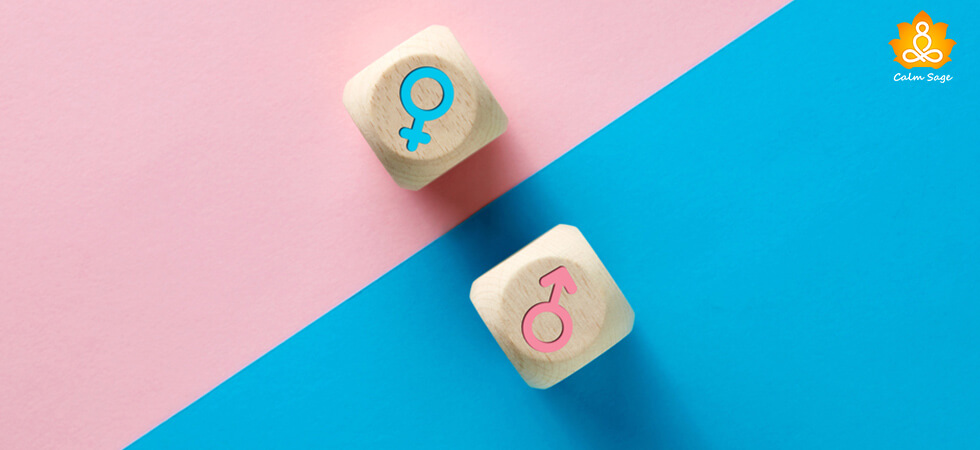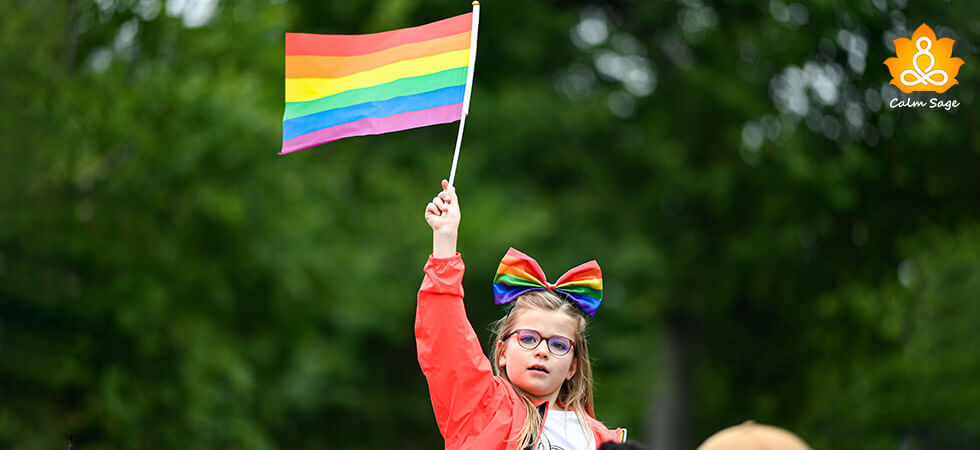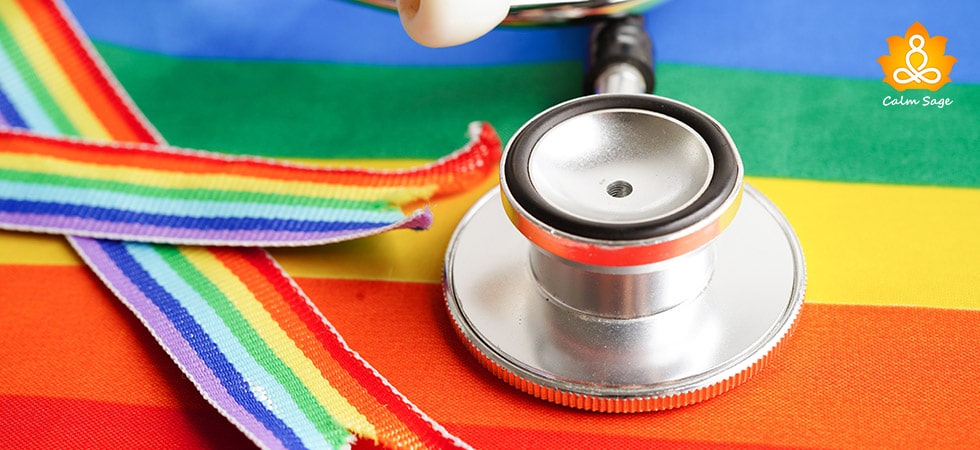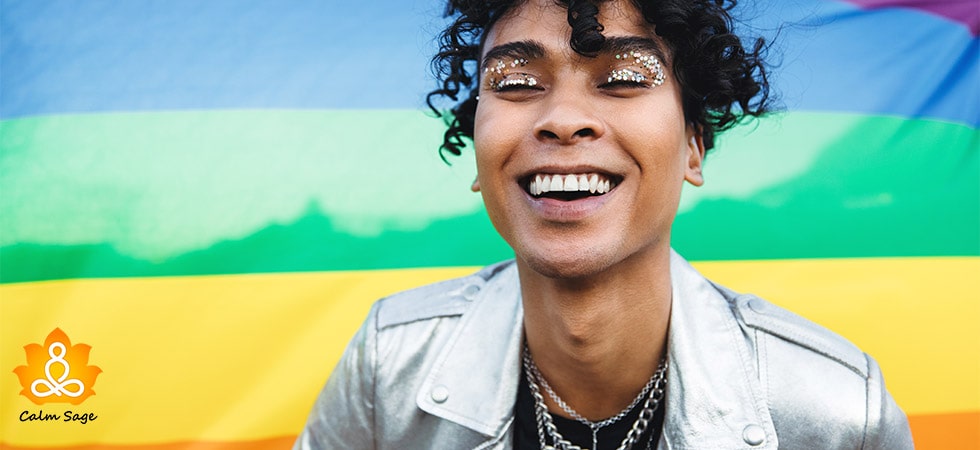Pride Guide 101: Glossary of Gender And Sexual Identity Terms

As we all know, pride month is celebrated in June every year. As compared to last year’s pride month, I think this pride month we all are coming to know and understand sexuality and equality.
As this year’s theme is, “The Rainbow after the Storm”, I thought why not write something which helps in gaining information towards the LGBTQ community. While you are coming up and trying to stand with the LGBTQ community, it is really important to know and use the apt terminology which correctly determines the sexual orientation and sexual identity.
If you’re an ally and want to empower individuals that have experienced judgment and prejudice over their sexual or gender identity, it is really important to use correct words as the use of incorrect words may disempower them while standing up for LGBTQ+ rights.
Therefore, let’s get started and understand what each term means in brief.
To keep it more simple and understandable, first, understand what is the acronym of LGBTQ+
L: Lesbian
G: Gay
B: Bisexual
T: Transgender
Q: Queer or Questioning
(+): Plus
For better understanding, I have divided this blog into two major parts:
- Sexual Identity Terms
- Gender Identity Terms
(You can click on the inter-related links to jump on the specific section)
Sexual Identity Terms
A
Ally: An ally is a person who supports the rights of the LGBTQ+ community but does not belong to the community.
Aromantic: It refers to a person who is uninterested in romantic relationships with any type of gender.
Asexual: Asexual refers to a person who is not sexually attracted to anyone or has a low sexual drive. Such people can have relationships with others but prefer not to have sex with them.
Allosexual: Allosexual refers to the person who practices sexual attraction.
Androsexual/Androphillic: It refers to a person who experiences romantic or sexual attraction to males or men including those who identify as men regardless of assigned sex.
B
Bicurious: It refers to a person who is curious and still exploring attraction towards people of the same gender/sex but it is not necessary that they are identified as bisexual.
Biphobia: Biphobia refers to intolerance, fear, dislike, discomfort, hatred, or stigma for people who identified or identifies as bisexual. Such attitudes are stereotypes related to bisexual people.
Butch: Butch is used for a woman who acts like a man and always plays the dominant part in the relationship.
C
Cishet: Cishet refers to a person who is both heterosexual and cisgender.
Closeted: Closeted refers to a person who is not ready to accept their sexual orientation or tries to keep a secret from other people due to fear of being judged or rejected.
D
Demiromantic: It refers to a person who experiences romantic feelings after building a strong emotional connection with someone.
Demisexual: It refers to a person who does not innate sexual attraction but develops over time through a strong emotional connection with someone.
E
Erasure: Erasure refers to the practice of ignoring sexuality’s existence over a spectrum.
F
Family of origin: It refers to an individual biological family.
Fluid: Fluid is the concept based on sexual orientation and sexuality that changes over time and totally depends on the situation or concept.
G
Gay: Gay refers to a person who has a romantic or sexual attraction towards a person of the same sex. The term is generally used to refer to men who are attracted to men but it can also be used for other genders as well.
Graysexual: It refers to the person who lives in a gray area of the spectrum. They don’t identify as aromantic or romantic.
H
Heterosexual: It refers to the people who have an emotional attraction or sexual orientation towards the member of the opposite gender. They are generally referred to as ‘straight’.
Heteroflexible: It refers to the person who is primarily heterosexual but also keeps interested in same-sex relationships.
I
Internalized homophobia: Internalized homophobia refers to self-hatred which is based on judgment and fear about one’s sexual orientation. It is basically rooted in the ideology of homophobia.
L
LGBTTTIQ: It is an acronym used to refer to lesbian, gay, bisexual, transsexual, transgender, two-spirit, intersex, and queer communities.
LGBTQIA: It is an acronym used to refer to lesbian, gay, bisexual, transgender, queer questioning, intersex, and asexual communities.
M
MSM: MSM is an acronym used to refer to a man who has sex with men regardless of their sexual orientation.
Monogamous: It refers to people who keep relationship with single people at a time
N
Neutrosis: Neutrosis refers to non-binary individuals who fall under the genderqueer umbrella. They can also be considered genderless.
O
Out of the closet: It refers to the ongoing process of coming out as with original sexual orientation.
Omnisexual: It refers to the person whose sexuality is not limited to specific sexuality.
P
Polyamorous: It refers to people who have relationships with more than one person at a time.
Pomosexual: It refers to the people who reject labels related to sexual identity or don’t identify them with a particular sexual label.
Q
Queer: This is an umbrella term for people who are not heterosexual or are not cisgender. It is also a derogatory manner of referring to the LGBTQ community.
Questioning: Questioning is the procedure through which a person questions and discovers their sexual identity or orientation.
R
Romantic Attraction: It is a process by which people keep an emotional connection with another person.
S
Same Gender Loving: It is a term used to convey same-gender love and orientation.
Skoliosexual: Sometimes spelled scoliosexuality refers to the attraction to people who are transgender or nonbinary.
Sapiosexual: It refers to the person who experiences attraction on the basis of the intelligence of another person.
Sex Averse: It refers to people who don’t keep any interest or show an unwillingness in engaging in sexual behavior.
Sex Repulsed: It refers to people who are asexual and repulsed by sexual behavior.
T
Trixic: It refers to a nonbinary person who is attracted to females. They can also be identified as lesbians.
Third Gender: This is a concept in which individuals are categorized, either by themselves or by society, as neither man nor woman
V
Varioriented: It refers to the situation when an individual’s sexual interest in not projected at the same sex or gender.
W
WSW: It refers to females who have sex with females. This includes bisexual women, lesbians, and heterosexual women.
Gender Identity Terms
A
AFAB: It is an acronym used to refer to “assigned female at birth.”
AMAB: It is an acronym used to refer to “assigned male at birth.”
Agender: It refers to an individual who does identify with any sex or gender identity.
B
Bigender: It refers to the person who identified with two different genders or sex at the same time.
Body Dysphoria: It refers to the discomfort related to the body which is related to misalignment or gender identity.
C
Cisnormativity or Cisgender: It refers to an individual whose subconscious sex aligns or gender identity with the same sex that they were assigned during the birth.
Cross-Dresser: A cross-dresser is an individual who wears clothes not according to gender. It is a way of self-expression.
D
Deadname: It is the name assigned during the birth that the person does not identify with. It basically reflects the idea that the assigned name no longer reflects the original identity of the person, hence the word “dead” is used.
Demigirl/Demiboy/Demigender: “Demi” refers to the person who experiences partial identification with a specific gender. Other words for this are demitrans or demienby.
F
Family of choice: It refers to the circle of friends or partners that are identified as LGBTQIA+. They are considered as a family as they share the same pain and support that was truly missing since their birth in their biological family.
Feminine of center: It refers to an individual who identifies with a feminine gender expression.
Femme: It refers to the person with a gender expression or identity that leans towards being feminine. A person who is femme does not mean it should be a woman. It can be anyone with feminine expressions.
G
Gender Affirmation Surgery: It refers to surgery to affirm a person’s gender identity that includes changing primary sexual characteristics.
Gender Apathetic: It refers to a person who does not care about one’s gender. To keep it simple, they do not identify with any specific gender.
I
Intersex: It refers to the person who is born with characteristics that cannot be categorized as male or female.
L
LGBTQ2: It is an acronym used to represent lesbian, gay, bisexual, transgender, queer and questioning, and two-spirit.
LGBTI: It is an acronym used to refer to lesbian, gay, bisexual, transgender, and intersex.
M
Masculine-presenting: It refers to the person with gender expression which is considered to be masculine.
Maverique: It refers to the person who has experienced gender identity different from current descriptions or categories.
N
Neutrosis: Neutrosis refers to the people whose gender is not female or male.
Novigender: It refers to the gender identity which is used to describe the experience of an individual who does not feel that his/her gender can be described with the help of existing categories due to complications.
O
Outing Someone: Outing someone means telling a person about someone’s gender identity even when they are not ready to accept it.
P
Passing: It refers to the experience of passing someone’s gender identity.
T
Third Gender: It refers to the term wherein gender has entered from native or non-western cultures.
I hope this blog helps you in polishing your knowledge towards LGBTQ+ terms. Comment down and share this blog to aware people in terms of sexual and gender identity rights. To celebrate Pride Month with us, connect with us on all social media platforms.
Thanks for reading.
Happy Pride Month! ☺
Next Read:
5 Mental Health Resources For LGBTQ Teens




















